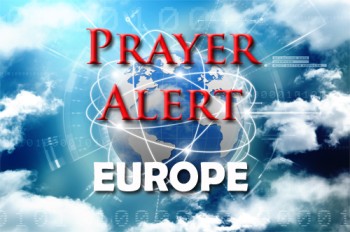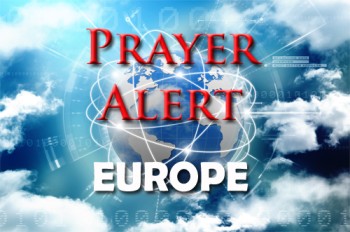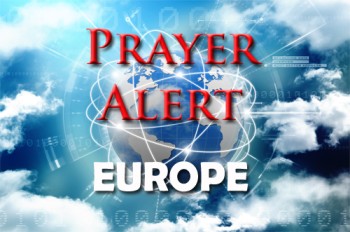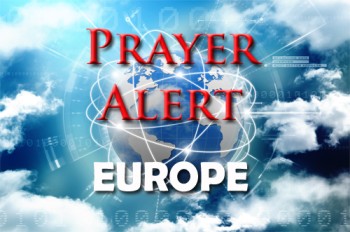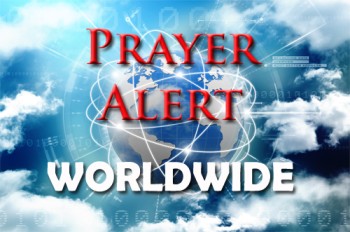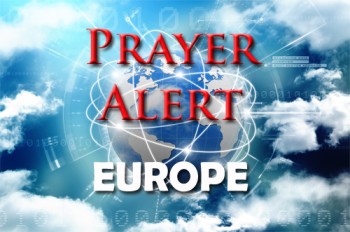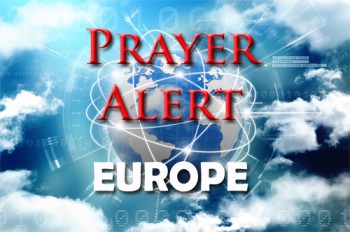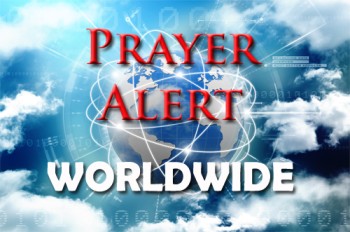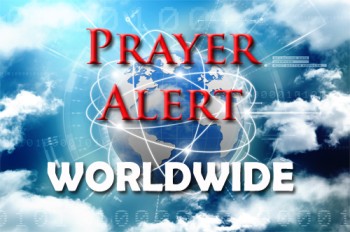Displaying items by tag: Turkey
Europe: severe heatwave, record temperatures, wildfires
A severe early-summer heatwave is scorching much of Europe, triggering wildfires, evacuations, and health alerts across multiple countries. In Turkey, over 50,000 people have been evacuated due to wildfires, especially near Izmir. France has faced peak temperatures of 40°C, with wildfires prompting evacuations. Spain is on track for its hottest June ever, with Seville reaching 42°C. Italy issued red heat alerts for 16 cities and may restrict working outdoors. Germany is also issuing warnings, urging water conservation while facing disrupted river shipping because the water level of the Rhine has dropped. UN secretary-general António Guterres has commented, ‘Extreme heat is no longer a rare event – it has become the new normal.’ Heatwaves are already the world’s deadliest weather hazard, killing nearly half a million people annually, surpassing the toll from floods, hurricanes, and earthquakes combined.
Turkey: over 1,400 arrested, protests continue
Protests have rocked Turkey for more than a week after the arrest of Istanbul’s mayor Ekrem Imamoglu, a key opposition figure and potential rival to President Erdogan. He was detained on corruption charges, which he and his supporters claim are politically motivated. Over 1,400 people have been detained since the unrest began, including students, journalists, and lawyers. Rights groups and the UN have condemned the mass arrests and police violence. Despite government bans, thousands have continued to gather in Istanbul, chanting against the government and demanding early elections. The Republican People's Party (CHP) is calling for transparent trials and the release of detained officials. President Erdogan has denied any political interference, warning protesters they are leading the country into chaos. Journalists covering the protests have also been arrested, prompting international concern. While Imamoglu remains eligible to run for president unless convicted, his arrest has escalated tensions in an already polarised political climate.
Turkey: key opposition leader arrested
The mayor of Istanbul, Ekrem Imamoglu, a key opposition leader, has been arrested days before he was to be selected as a presidential candidate. Along with 100 others, he has been charged with corruption and aiding a terrorist group. The arrest comes as part of a major crackdown nationwide in recent months, targeting opposition politicians, municipalities, journalists and figures in the entertainment industry. It has triggered nationwide protests, with police using force to disperse crowds. The government has imposed four days of restrictions in Istanbul, banning public gatherings and limiting internet access. The opposition sees this as a politically motivated move to weaken Imamoglu’s challenge to president Recep Erdogan, whose party was recently defeated in elections in Istanbul and Ankara. The government denies interference, insisting on judicial independence. Imamoglu has faced other challenges, including the annulment of his university degree, which would disqualify him from running. The international community has condemned the arrest, warning of Turkey’s increasing authoritarianism.
Turkey: 76 killed in hotel fire
A devastating fire at the Grand Kartal Hotel in the Kartalkaya ski resort has killed at least 76 people, marking one of the country’s deadliest hotel fires. Survivors reported that fire alarms failed to activate, and experts suggested that inadequate fire safety measures contributed to the high death toll. The fire, which began in the restaurant area, spread rapidly, forcing some guests to jump to their deaths. Discrepancies emerged regarding the hotel’s fire safety certification, with officials noting the absence of adequate fire escapes, alarms, and suppression systems. Nine individuals, including the hotel owner, have been detained as part of the investigation. Experts said that properly designed fire safety systems and escape routes could have mitigated the tragedy. Authorities continue to investigate claims of negligence and systemic failures, as questions grow over how such a disaster occurred in a major resort.
Middle East Christians: subdued Easter celebrations
This year’s Easter celebrations in the Middle East were subdued. In Gaza City, Christians who have found refuge in the Holy Family Church brought palm branches to the Palm Sunday service. One of their priests said the congregation has been ‘enduring relentless Calvary for months’. SAT-7 broadcast Easter services live from the Evangelical Lutheran Church in Bethlehem. The church’s pastor said, ‘In Palestine our Good Friday has lasted way too long, but Easter reminds us that the final word belongs to God… Our belief in the God of the Resurrection means that ultimately goodness, righteousness, and justice will prevail’. There were few foreign pilgrims in Jerusalem and most West Bank Christians were denied access under tightened security rules. SAT-7’s Turkish channel broadcast a service from a church in Istanbul which had been attacked by two gunmen during a Sunday service on 28 January; one man was killed in the incident. SAT-7 wanted to show solidarity with the congregation after such a traumatic event. SAT-7’s Easter programming is especially important for those in countries where people cannot celebrate openly because of persecution and restrictions on religious freedom.
Turkey: Unreached people group
The Sunni Zaza are nomadic shepherds and farmers who practise mysticism. Years of repression leaves them crying out to God for help. Their Sunni Muslim mystical faith is rooted in shamanism and Zoroastrianism – spirituality not easily broken. Yet God is overcoming spiritual obstacles and a few dozen believers have emerged among Zaza speakers. Zaza has almost no literary tradition except a specimen of a poem praising Muhammad. Recently two magazines written in Zaza have emerged. See This little but growing church worships in Turkish - as they wait for biblical resources in their own dialects. The spoken word is more natural to Zazas than the written word, pray for workers to know how to develop fruitful oral resources.
Turkey: presidential election run-off
Opinion polls predicted a win for opposition candidate Kemal Kilicdaroglu in the election. However, President Erdogan received 49.5% of the votes, making it a serious test of his twenty-year iron rule. Turkey’s economy has soaring inflation, a plummeting lira, and a cost-of-living crisis partly caused by Erdogan’s wacky economic policies. Also the shambolic response to February’s earthquake which killed 50,000 and displaced 1.5 million added to Erdogan’s many corruption and mishandling scandals. Could mild-mannered technocrat Kemal Kilicdaroglu, who is capable of uniting opposition parties of left and right, be what Turkish voters want in the run-off on 28 May? He has pledged to rule Turkey ‘with consultations and compromise’. A million Turkish expats living in the USA, Germany and Canada voted in the first round of the election: Kilicdaroglu has vowed to win the second round.
Turkey testimonies
Aftershocks are still shaking the eastern Mediterranean as far as Iraq, following on from the severe earthquakes in southern Turkey and northern Syria which left over 50,000 dead and millions homeless. Amidst all the misery, death and destruction, we are hearing testimonies from people who were buried alive and rescued from the rubble after more than a week. They all experienced a bright figure in white who came towards them and gave them something to drink.
Turkey: active remnant church
The death toll is tens of thousands. The devastation and trauma is palpable, after the 7.8-magnitude earthquake shook Turkey. Over several years, many foreign Christians have been expelled from Turkey. Most of those remaining are local Turkish believers, 0.5% of the population. Amid the suffering, Turkish Christians are helping one another and embracing Muslim neighbours with aid. In areas where rescue teams were slow to arrive, believers rushed in from other parts of Turkey to help. Their presence is opening doors to offer Gospel comfort. We pray for the grieving. We pray for the spiritually lost. Lord Jesus, break down deep-seated prejudices against Christianity. Move through your remnant church.
Turkey: third earthquake buries more people
Rescuers once again searched for people under rubble after a 6.4 magnitude earthquake and 5.8 aftershock struck near Antakya, where massive quakes had devastated communities two weeks earlier. Buildings weakened by previous tremors collapsed this time. The death toll is relatively low because the area was almost empty after being hit by previous quakes. 294 people were injured - 18 of them seriously. Pray for God to comfort survivors like Ali who was looking for the bodies of his family after the previous earthquakes when the latest tremors hit. He said, ‘We grabbed each other and right in front of us, the walls started to fall’. Pray for the 865,000 people living in tents, 23,500 in container homes, and the 376,000 in public guest houses and student dormitories. Meanwhile Turkey is widening investigations into building servicers violating safety standards. By 23 February 564 suspects were identified, 160 arrested, and many more were under investigation.
